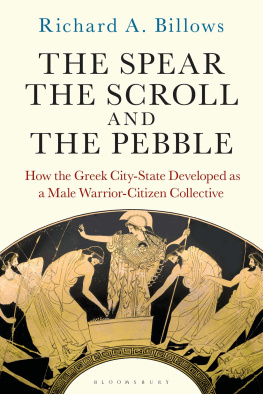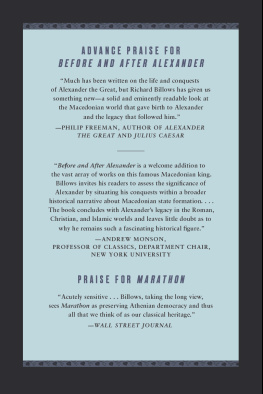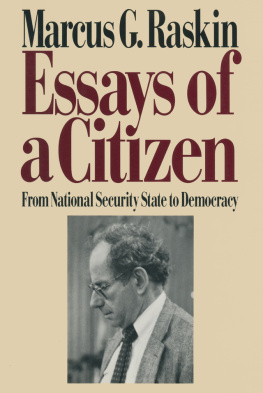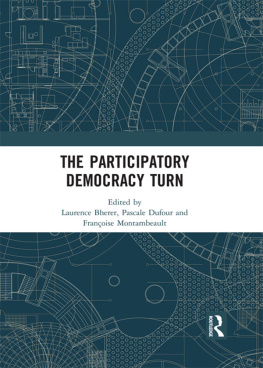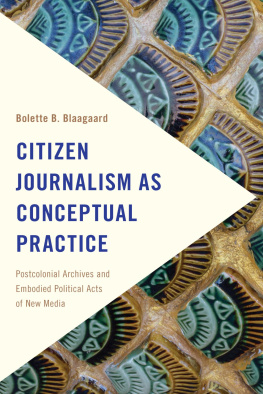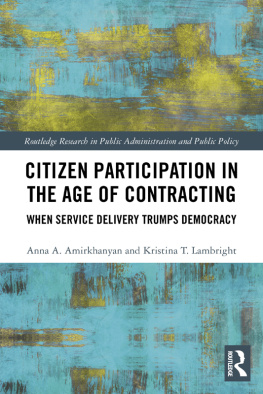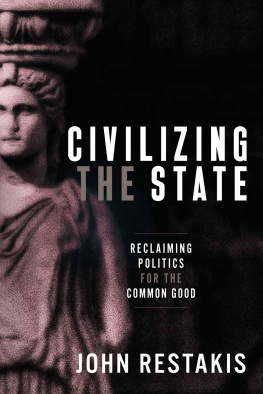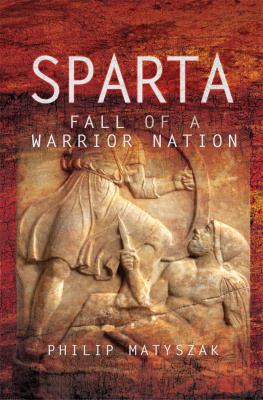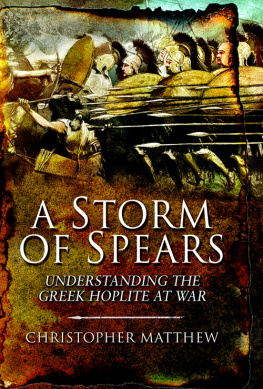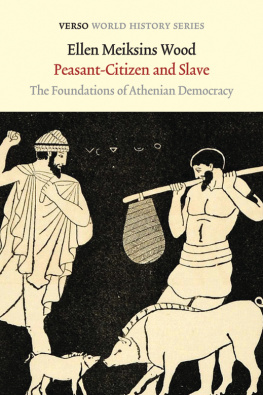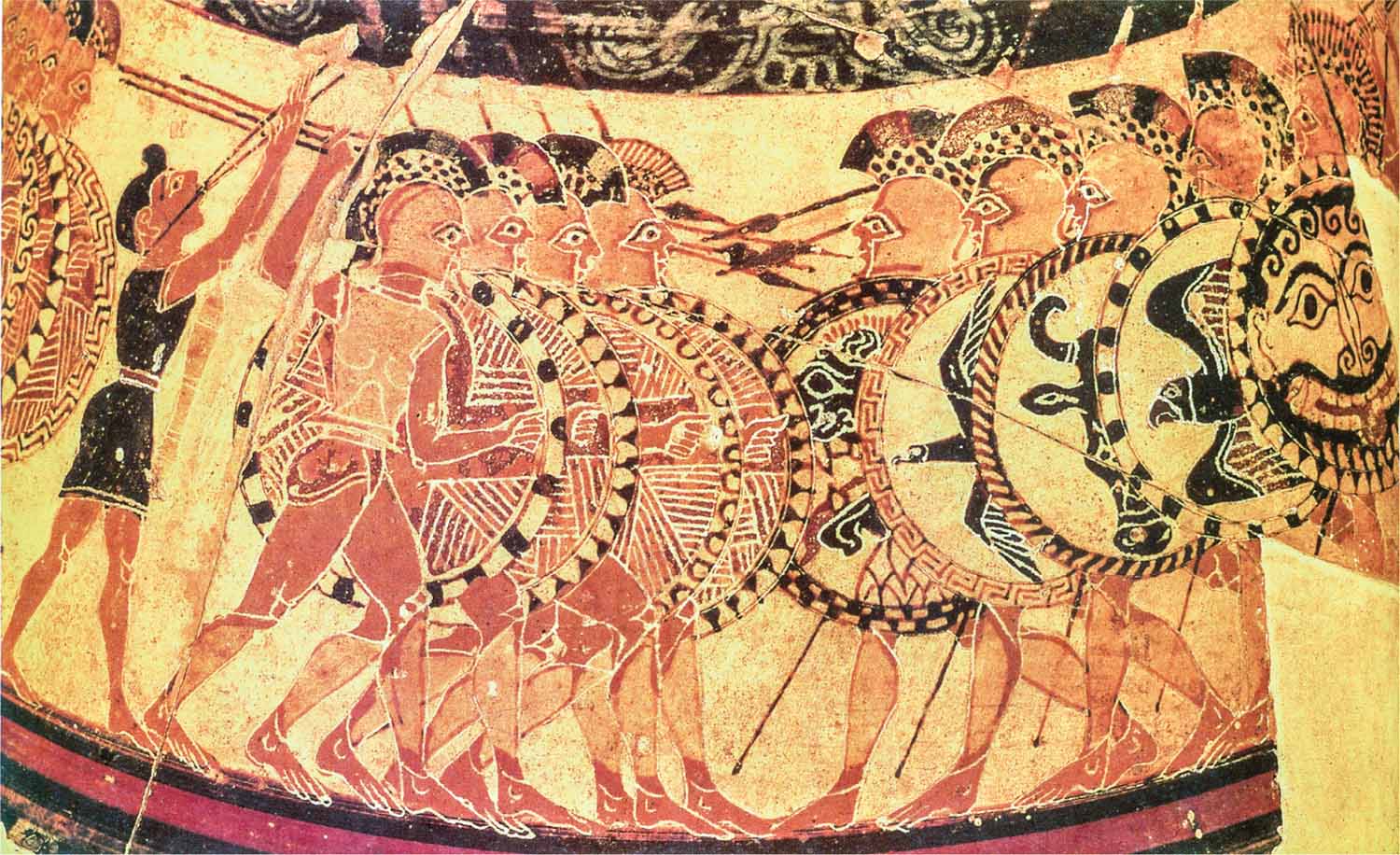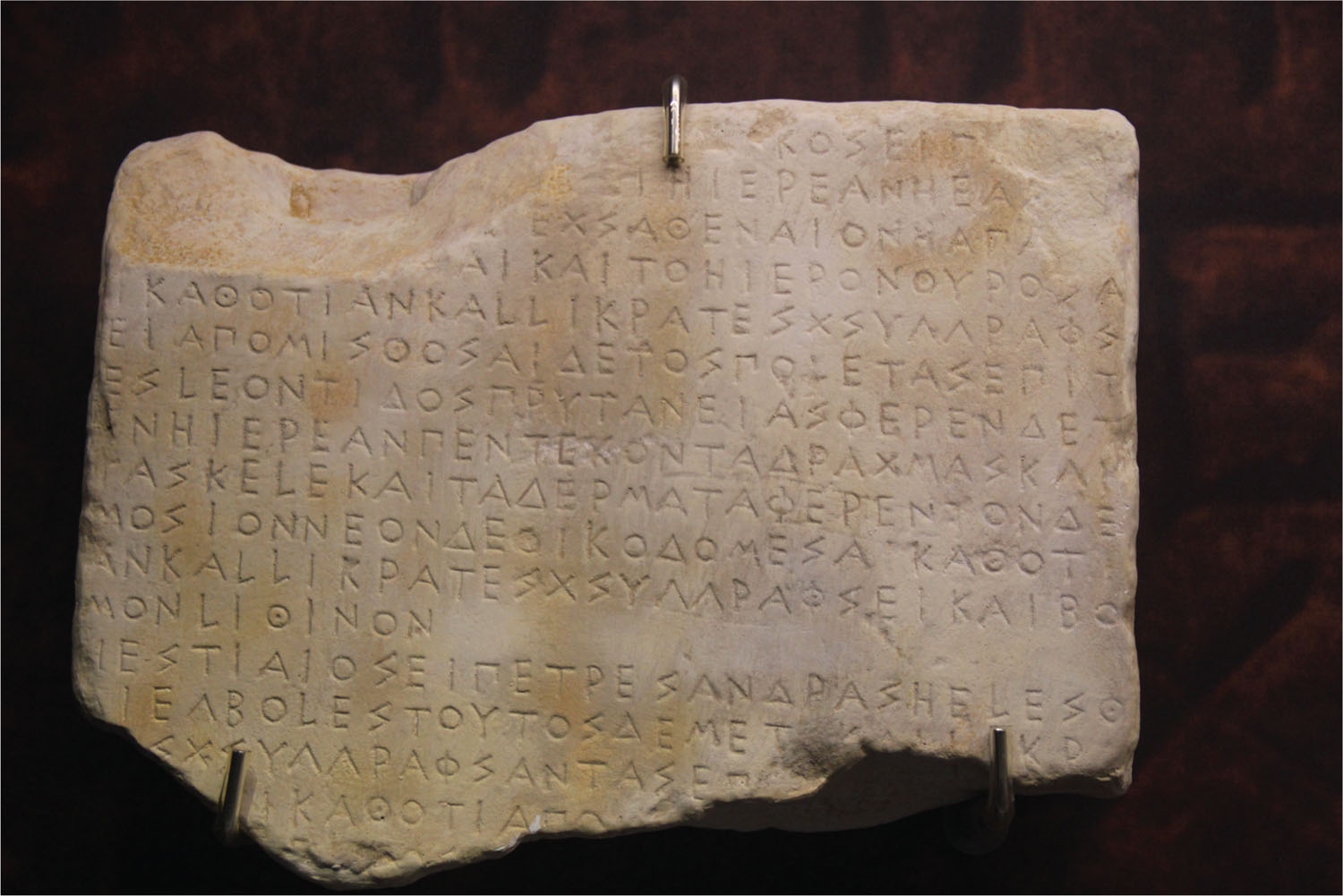Richard A. Billows - The Spear, the Scroll, and the Pebble: How the Greek City-State Developed as a Male Warrior-Citizen Collective
Here you can read online Richard A. Billows - The Spear, the Scroll, and the Pebble: How the Greek City-State Developed as a Male Warrior-Citizen Collective full text of the book (entire story) in english for free. Download pdf and epub, get meaning, cover and reviews about this ebook. City: London, year: 2023, publisher: Bloomsbury Academic, genre: History. Description of the work, (preface) as well as reviews are available. Best literature library LitArk.com created for fans of good reading and offers a wide selection of genres:
Romance novel
Science fiction
Adventure
Detective
Science
History
Home and family
Prose
Art
Politics
Computer
Non-fiction
Religion
Business
Children
Humor
Choose a favorite category and find really read worthwhile books. Enjoy immersion in the world of imagination, feel the emotions of the characters or learn something new for yourself, make an fascinating discovery.
- Book:The Spear, the Scroll, and the Pebble: How the Greek City-State Developed as a Male Warrior-Citizen Collective
- Author:
- Publisher:Bloomsbury Academic
- Genre:
- Year:2023
- City:London
- Rating:5 / 5
- Favourites:Add to favourites
- Your mark:
The Spear, the Scroll, and the Pebble: How the Greek City-State Developed as a Male Warrior-Citizen Collective: summary, description and annotation
We offer to read an annotation, description, summary or preface (depends on what the author of the book "The Spear, the Scroll, and the Pebble: How the Greek City-State Developed as a Male Warrior-Citizen Collective" wrote himself). If you haven't found the necessary information about the book — write in the comments, we will try to find it.
This book presents a powerful new argument for how and why the Greek city-states, including their distinctive society and culture, came to be - and why they had the highly unusual and influential form they took. After reviewing early city-state formation, and the economic underpinnings of city-state society, three key chapters examine the way the Greeks developed their unique society. The spear, scroll and pebble encapsulate the books core ideas.
The Spear: city-state Greeks developed a citizen-militia military system that gave relatively equal importance to each citizen-warrior, thereby emboldening the citizen-warriors to demand political rights.
The Pebble: the resultant growth of collective political systems of oligarchy and democracy led to thousands of citizens forming the sovereign element of the state; they made political decisions through communal debate and voting.
The Scroll: in order for such systems to function, a shared information base had to be created, and this was done by setting up public notices of laws, proposed policies, public meeting agendas, and a host of other information.
To access this information, these military and political citizens had to be able to read. Billows examines the spread of schools and literacy throughout the Greek world, showing that the male city-state Greeks formed the worlds first-known mass literate society. He concludes by showing that it was the mass-literate nature of the Greek city-state society that explains the remarkable and influential culture the classical Greeks produced.
Richard A. Billows: author's other books
Who wrote The Spear, the Scroll, and the Pebble: How the Greek City-State Developed as a Male Warrior-Citizen Collective? Find out the surname, the name of the author of the book and a list of all author's works by series.

